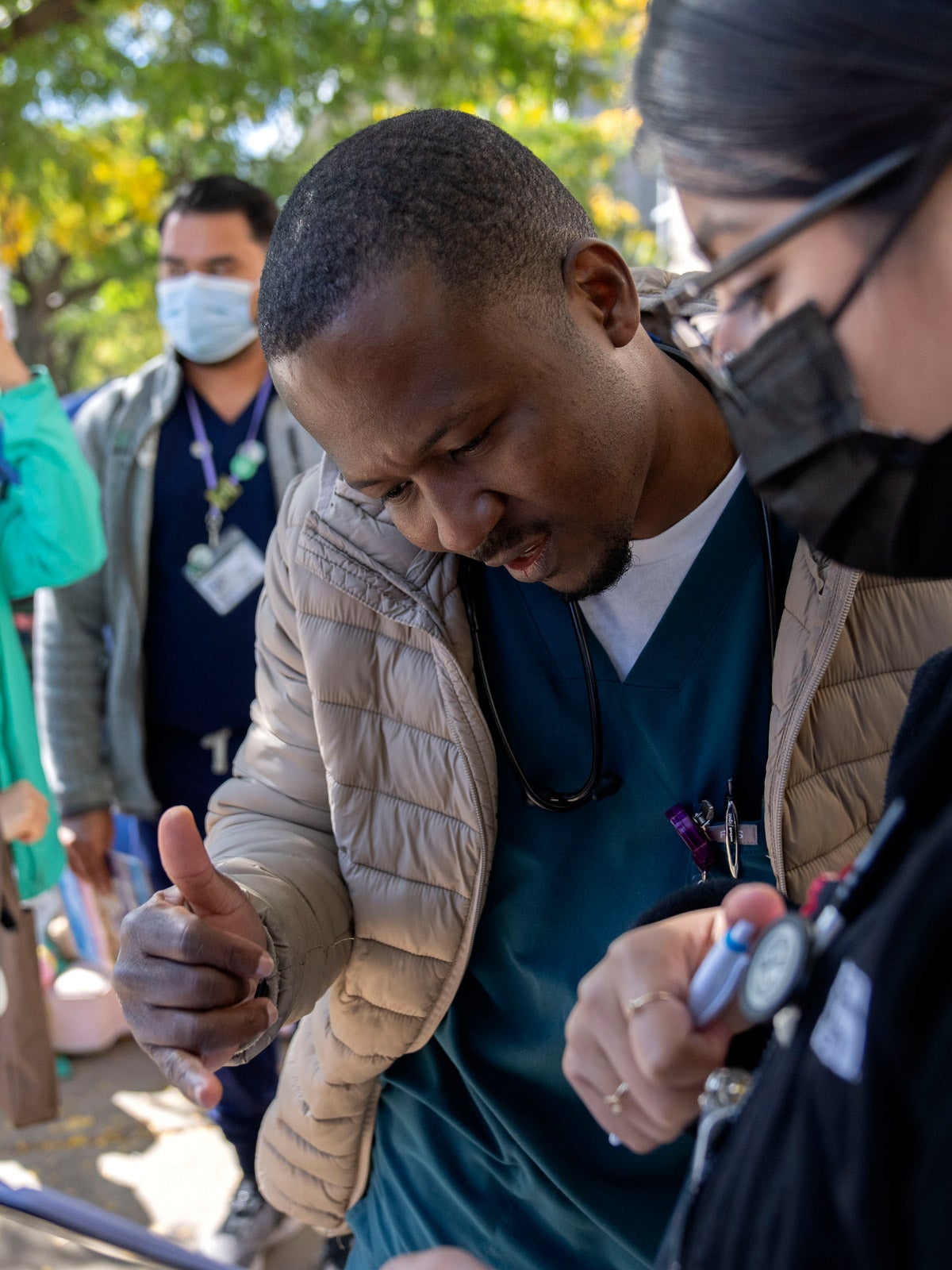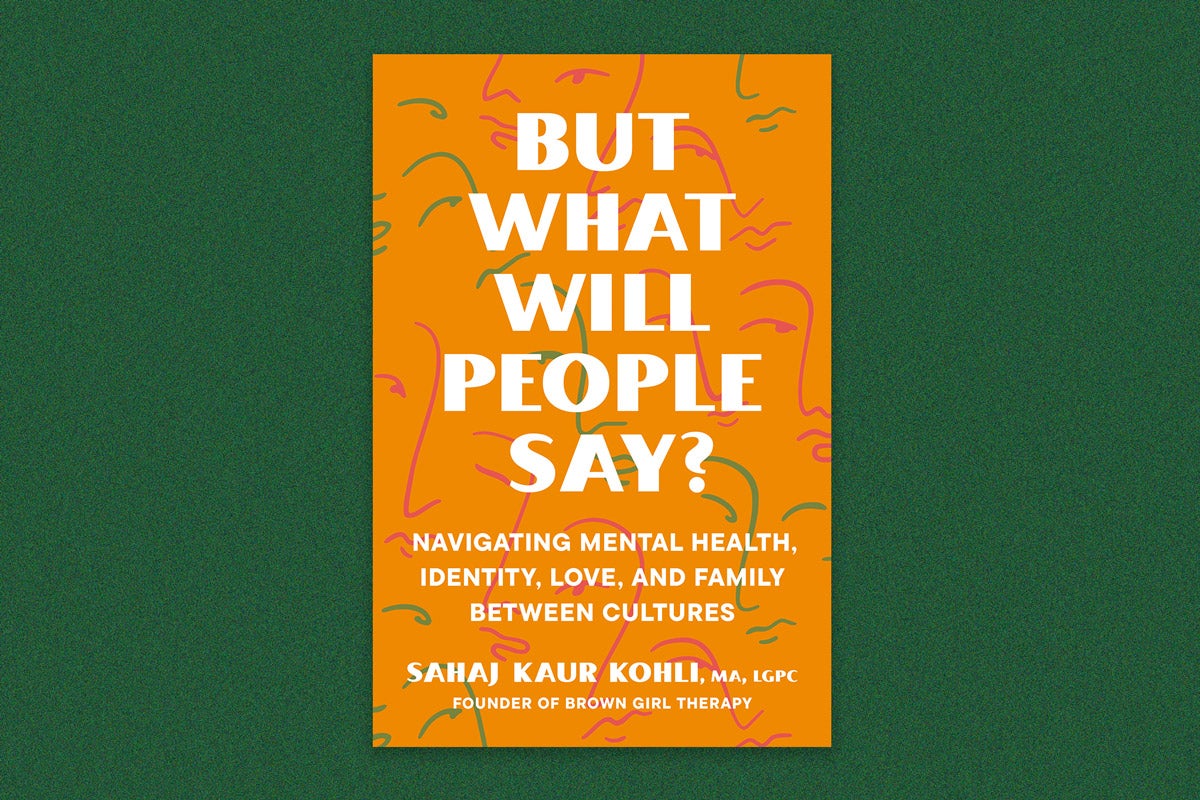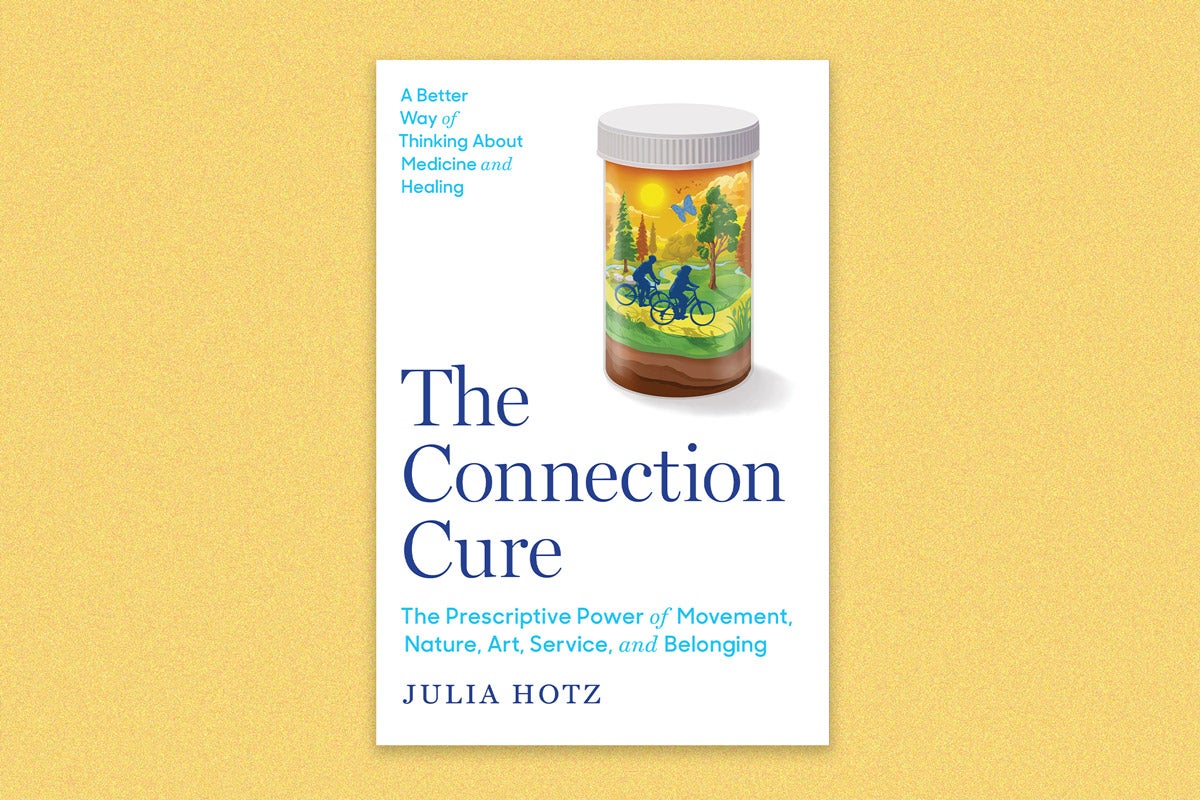
Opinion
Migrants come to the U.S. with trauma. A broken mental health system adds stress.
In just the last year, more than 140,000 people fleeing political instability, violence, crime, and unrest have arrived in New York City. Many of them grapple with dark trauma and anxiety, which clouds their thoughts. For help, they must navigate a system that is unprepared to tackle the looming mental health crisis of immigrants and asylum seekers.
This community has long been neglected by our mental health system. About one in three asylum seekers and refugees experience high rates of depression, anxiety, and post-traumatic stress disorder. Yet only three percent are referred to mental health care post basic health screening, thereby leading to worsened outcomes resulting in emergency care. Only seven percent of licensed psychologists in the U.S. identify as Latino, and only 5.5 percent of therapists can provide services in Spanish—yet 25 percent of the population arriving in the U.S. in the last six years are from Latin America.
The long tail of neglect has fueled distrust; coupled with mental health stigma and linguistic differences, these hurdles make it harder for people who have immigrated to access mental health care. Children are disproportionately impacted; research shows that immigrating at a younger age is associated with a greater likelihood of developing detrimental mental health outcomes. They also wrestle with the looming fear of instability and being deported, which can interfere with their ability to focus in school.
We’re New Yorkers who work with migrant patients, and we see the consequences of this psychological crisis. We also see four key actions that could make a difference, to individuals and to the mental health outcomes for this population.
Sign up for Harvard Public Health
Delivered to your inbox weekly.
Train more health care workers on early screening for refugee mental health needs
Mental health and developmental screenings are vital for early intervention at every stage of life. Right now, only 37 percent recently-arrived refugees receive mental health screenings, compared to half of other adults getting screened for mental health. It is imperative to train more providers of primary care, emergency room, and other health services on how to screen new arrivals who are experiencing symptoms of mental health conditions.
One promising model is using the electronic patient portal system to screen for mental health ahead of appointments for care. In a 2023 study, researchers at the University of Chicago outpatient clinic administered a short questionnaire over the patient portal, which identified patients with symptoms of depression and connected them with resources to seek mental health care. Patients who filled the screener at home reported more severe symptoms of depression than those who completed the screener during a visit. This may be due to how stigma around mental health—even in a medical setting—acts as a barrier to seeking care. More research is needed, but this early intervention is a promising window of opportunity for identifying people with symptoms of depression before they seek mental health care—or need emergency care.
Reform mental health care service delivery so that it reaches more people, where they are
Screening alone is not enough. A working referral system needs to be available to treat patients’ needs. This is where the national shortage of mental health professionals can be challenging—and collaborative care models can be helpful. In collaborative care-based programs, such as EmPATH, patients can get same-day access to a case manager or counselor trained by a psychiatrist who can provide brief psychotherapeutic interventions, such as problem-solving treatment, motivational interviewing, and behavioral activation. This strategy can improve patient health outcomes, save time and money, and eradicate mental health stigma.
EMPOWER is another promising innovation in mental health care delivery. The program trains community health workers and other nonspecialists in delivering key elements of mental health intervention and care, such as behavioral activation. Originated in India, the program is now rolling out with health workers in Texas.
Whether it’s in emergency care alternatives, like EmPATH, or in ongoing care delivery interventions, like EMPOWER, we need to train and support more case managers to deliver brief, targeted, and impactful mental health interventions—and to refer patients who may need more intensive care, including medication, to specialists. No matter where health workers meet people with migration backgrounds, they must be trained on migration-specific issues—like acculturative stress and anxiety around resettlement, and even the systemic and sociopolitical crises that may have brought them here in the first place. And most importantly, they must be versed in strategies to promote trust and meet them where they are.
Provide care beyond the clinic
Often, migrants avoid seeking mental health care due to mistrust and fear – until they need emergency care. As health care workers, we need to be more creative and provide care in culturally competent and appropriate ways, meeting migrants where they are: at schools, at places that offer legal aid, at community centers, and at shelters. And we need more health workers who are bilingual and who come from the communities they serve.
Meeting migrants where they are does not mean sacrificing standards of care. For instance, mobile health units (“clinics on wheels”) staffed with clinicians can be parked at shelters to serve migrants who have transportation issues. At Boston Medical Center, clinic staff at the Refugee Women’s Health Clinic team drive to neighborhoods with refugee, asylum-seeking, and immigrant communities to provide culturally-sensitive women’s health services. In addition to providing medical checkups, the clinician conducts a holistic needs assessment to support patients and meet them where they are—from offering food donations to connecting them to mental health resources in their community.
Clinics like the Refugee Women’s Health mobile care unit are equipped with a soundproof medical exam room onboard, function as a regular medical facility by protecting patient health information and only allowing in one patient at a time. If needed, patients can always be referred into an inpatient or outpatient facility for follow-up care.
Institute more laws that help new arrivals access basic needs
Social determinants of health interact across different systems, creating direct and indirect impacts on mental health. A recent survey from Make the Road New York shows that asylum seekers and newly arrived migrants are struggling to meet their basic needs and access key services, like legal representation and employment opportunities. Their other common challenges, like housing instability and food insecurity, can create chronic stress and lead to worsened mental and physical health outcomes over time.
Our legal system can exacerbate this stress: Federal law requires asylum applicants to wait 180 days to apply for permission to work in the United States. (Even after they receive a work permit, there is no guarantee they will get a job.) The requirement has afflicted cities like New York, where thousands of people have taken refuge in shelters, straining the system. Speeding up this process—as the federal government does with select groups given temporary status ad hoc—can make a major difference in reducing this stress. So, too, can employment assistance and the extension of government-subsidized programs like SNAP and WIC to non-citizens.
We must make changes to the historic and present systems of oppression in order to provide equitable mental healthcare to migrants. Multiple stakeholders in health care delivery and policymaking—from political figures to private healthcare providers to the public education system—must work together to make immigrant mental health a priority. For decades, immigrants have built our country. And today, they are protecting it. The least we could do is protect them.
Top image: Staff of a mobile medical team that treats migrants in Chicago confer during of care delivery. (Erin Hooley / AP Photo)


